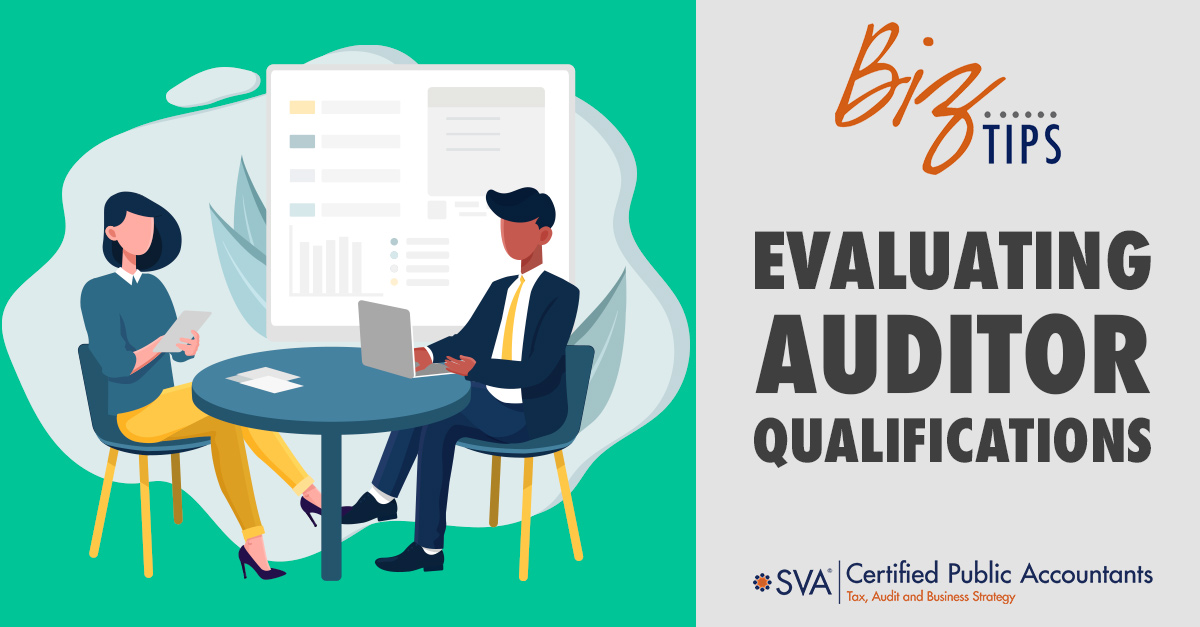Reviewing an auditor’s qualifications is a critical step in selecting your auditor. This will require the consideration of licensing and independence rules, as well as the auditor’s experience and professional development including specific audit experience in your industry and continuing professional education.
Experience and Professional Development
A firm equipped to provide a high-quality audit to your organization should be able to demonstrate its qualifications in response to your request for proposal. Evaluate whether the firm has experienced, qualified staff. Not only is overall experience important, but also experience relevant to your organization (i.e., retail, banking, construction, manufacturing, nonprofit, etc.) is a component of the firm’s qualifications.
In some instances, a less-experienced auditor may be assigned to perform routine audit procedures to reduce audit costs. When this happens, you should confirm that an experienced auditor will review his/her work, as well as perform the more complicated audit procedures.
Identifying Quality Audit Firms
The size of a firm doesn’t dictate the level of audit quality — it’s their commitment to quality.
The AICPA (American Institute of Certified Public Accountants) established the profession’s Peer Review Program to enhance the quality of accounting, auditing, and attestation services performed by its members in public practice. The results of a firm’s peer review provide a look at quality control systems and adherence to the profession’s standards.
If a firm doesn’t provide the results of its latest peer review with its proposal, ask for it. You’ll also find information on accessing a firm’s peer review information in the Additional Resources section of the report Hiring a Quality Auditor: Your Guide to the Selection Process (download link is below).
A commitment to quality can also be shown by a firm’s additional membership in AICPA resource centers including:
| Governmental Audit Quality Center (GAQC) |
Includes resources relating to financial statement audits of both governments and nonprofits and single audits |
| Employee Benefit Plan Audit Quality Center (EBPAQC) |
Offers tools and resources to promote the quality of employee benefit plan audits |
| Center for Audit Quality (CAG) |
Provides resources for auditors of public companies |
| Private Companies Practice Section |
Includes resources relating to quality control |
| Center for Plain English Accounting |
Provides technical assistance to CPA firms |
Firms that are members of the GAQC and EBPAQC are required to establish higher standards of audit quality in their policies and procedures specific to the practice area. These quality centers also offer additional resources to help firms provide quality services to their clients.
If these practice areas are relevant to your organization, as you consider firm proposals, ask representatives of the firms if they are members of these centers.
When engaging an auditor, you should obtain references and discuss the auditor’s work for other clients. You may want to obtain the continuing professional education records of the proposed audit team and determine that team members have recent training that addresses unique issues related to your industry, if applicable.
Independence
CPA professional standards require that the auditor be independent for purposes of auditing financial information and issuing an auditor’s report on the financial statements. The auditor’s independence is essential for a successful audit because it enables him or her to approach the audit with the necessary professional skepticism.
Independent auditors must adhere to rules of auditor independence established by the AICPA (and the SEC and the Public Company Accounting Oversight Board, if applicable).
Licensing
CPA firms are required to meet the licensing requirements of the state(s) in which they practice. You may wish to verify with the appropriate state regulatory authority that the audit firm holds a valid, up-to-date license or certificate to perform auditing services (most states make this information available online).

© Association of International Certified Professional Accountants

